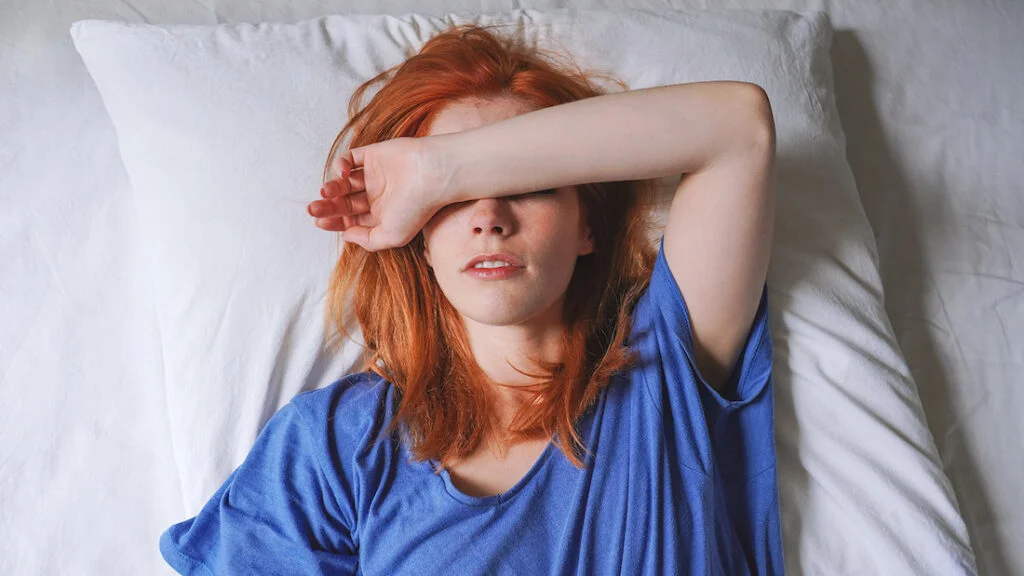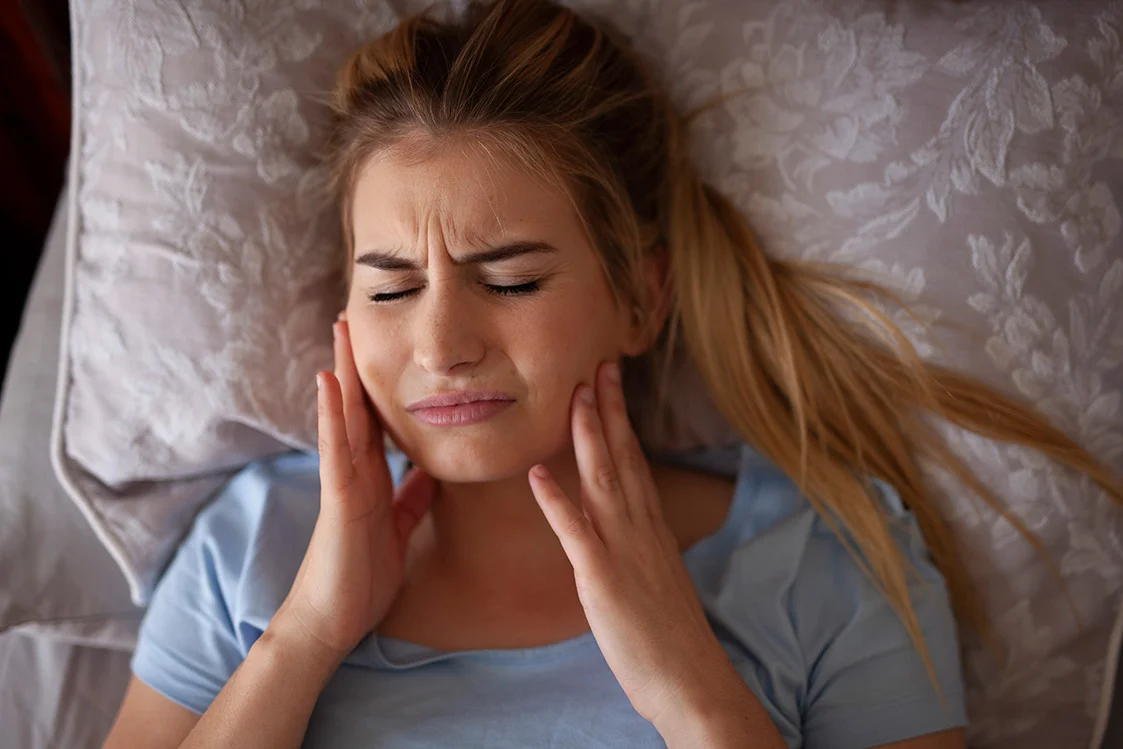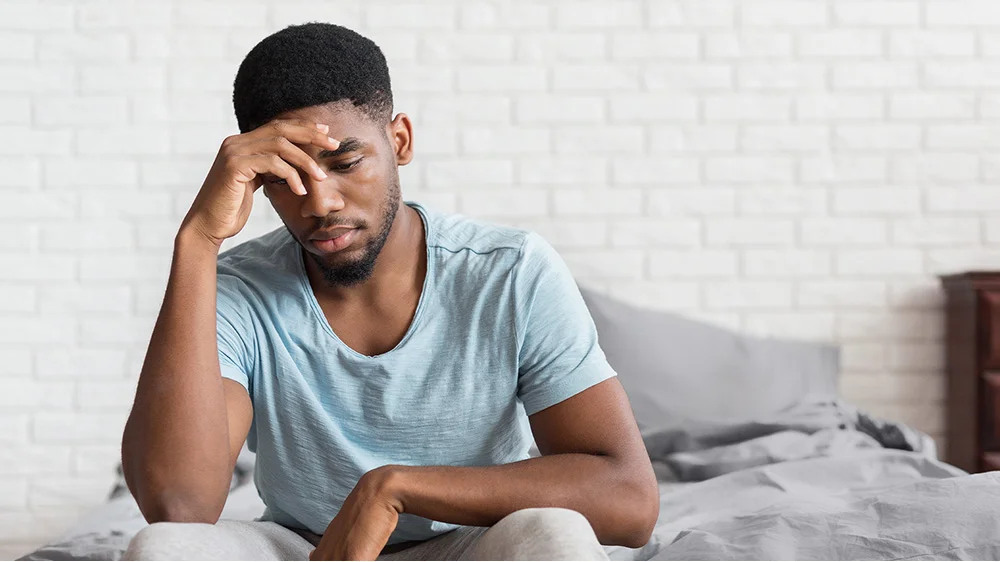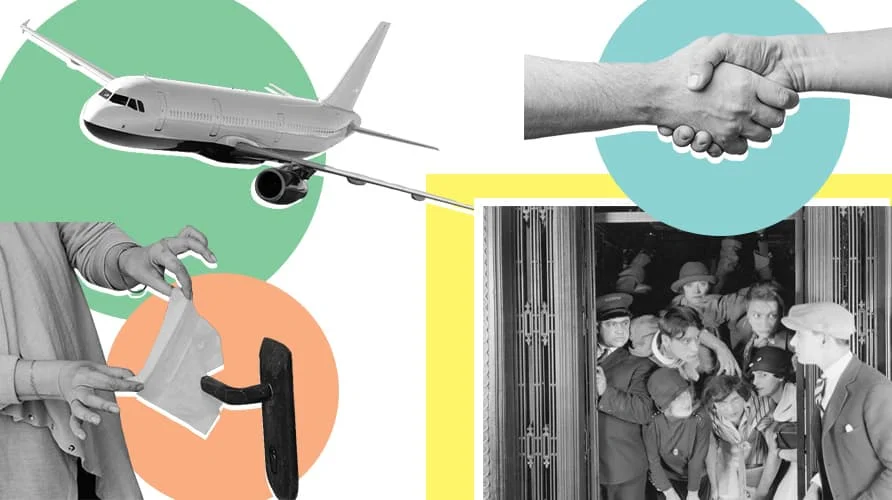
There’s nothing worse for a migraine or headache sufferer trying to fall (or stay) asleep with a pounding headache. Nearly 40 percent of Americans are somewhat bothered by headaches, and 6.6 percent of them are bothered a lot by them, according to the 2021 NHIS survey. But aside from taking an over-the-counter pain killer and waiting it out, some people don’t know how to mitigate this painful and pesky condition stealing their sleep.
People with migraines are 2 to 8 times more likely to experience sleep disorders, according to the American Migraine Foundation. So, Dr. Andrea H. An, medical director at Neurology Associates Neuroscience Center in Arizona, has spent 20 years helping patients get their lives, and sleep, back with specific steps to fix nighttime headaches and migraines. In a recent press release, she details steps migraine sufferers can take, in addition to seeing their own doctor and potentially a specialist to resume their optimal sleep schedule and quality.
The first step, she recommends, is doing some information gathering about your headaches — a headache journal can identify things like the time of day, the duration and intensity, potential triggers from foods to activities, and more.
“Document what you’re eating or drinking when you have the headaches,” An says. “This can help to find a pattern that can lead to effective interventions,” she says in the press release. “For example, some headaches are caused by dehydration, so knowing what triggers them is useful for those cases where it can be determined.”
Next, determine how many headaches you are having each month. She says more than 10 headaches indicates it’s time to see a neurologist about pain management for chronic headaches. “While most headaches are benign, meaning they’re not from a tumor or other dangerous condition, it’s a quality-of-life issue. There’s no need to suffer with debilitating pain.”
When it comes to treatments, Botox injections are still the “gold standard” An explains, because they disrupt the pain signals before they reach the brain. Studies have shown that three of four patients achieve a 50 percent or greater reduction in headaches after just two treatment cycles.
At the appointment, you can expect a neurologist to conduct some brain imaging to rule out more severe conditions, such as brain tumors. On the other end of the spectrum, she says, if you are having more occasional one time headaches, try “Tylenol, ibuprofen, or Excedrin Migraine.”
Aside from medical intervention, there are some at-home remedies and environmental and habit changes you can make to help yourself get more shut eye during your battle with migraines. The American Migraine Foundation recommends multiple changes that overlap with general good sleep hygiene practices.
These Include:
- Avoid screen time before or in bed, including phones and television. They even suggest not reading in bed
- Allow for eight hours of time in bed, and keep that as a consistent part of your everyday schedule
- Don’t eat within four hours of bedtime, and limit fluids within two hours of bedtime
- Cut naps for better overnight sleep
Finally, keep an eye on alcohol intake, teeth grinding, and other triggers that could be worsening your migraine and sleep.
With some intentional intervention, and an attentive physician overseeing your plan, you can get back on track with sleep, and overall health.

Acupressure Points for Sleep/Insomnia

Bruxism or Jaw Clenching: Symptoms and Treatments

The Real Link Between Mental Health and Sleep

How Does Anxiety Affect Your Sleep?
Sources
Centers for Disease Control and Prevention; “National Health Interview Survey,” National Center for Health Statistics; August 8, 2022. https://www.cdc.gov/nchs/nhis/2021nhis.htm

























